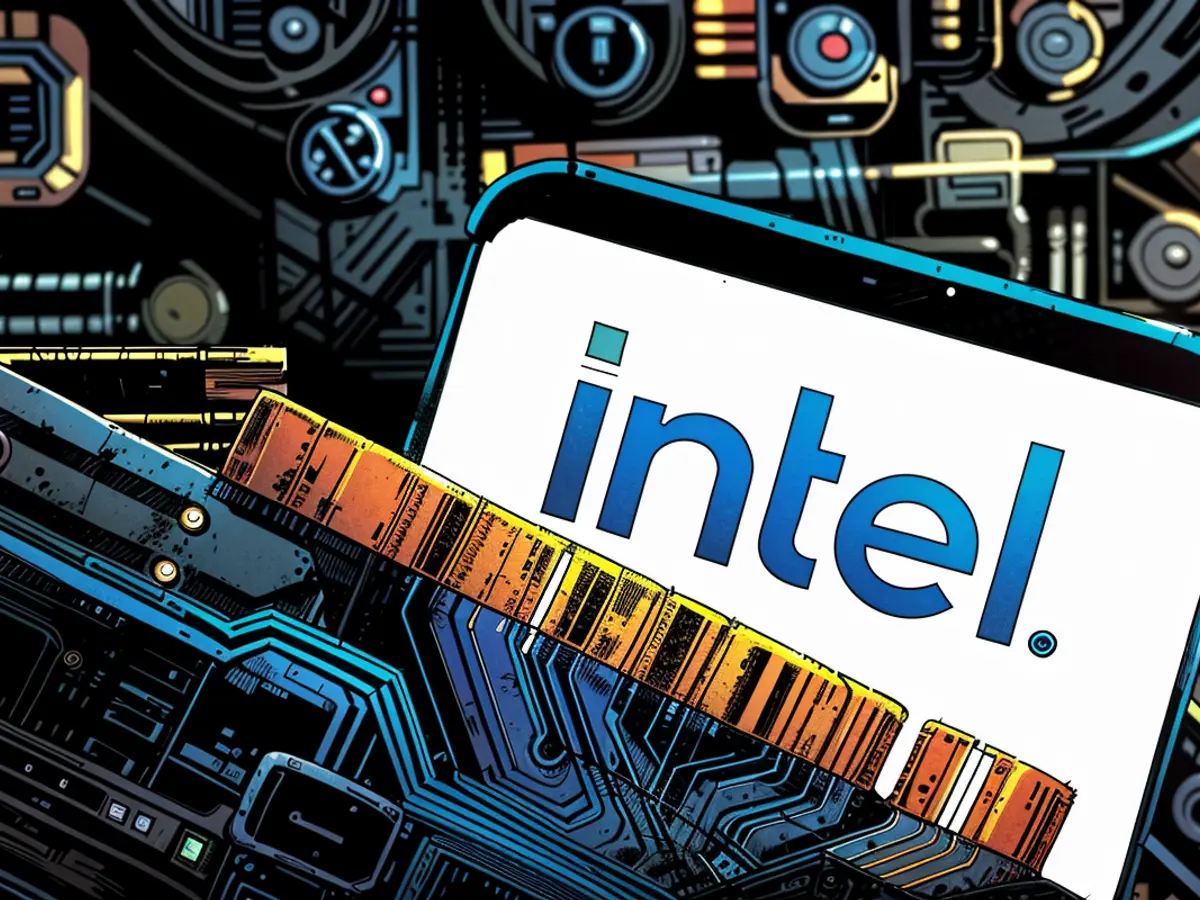Intel is embracing an extreme remedy.
Struggling tech giant Intel is reportedly considering drastic measures to reverse its financial decline, according to recent reports. The U.S. company may consider splitting or abandoning certain factory projects, with this potential plan set to be presented to the board in the coming month, according to sources. However, it's important to note that these considerations are still in their early stages and no immediate actions have been planned.
One possibility is for Intel to separate its chip production, which has already been spun off into a separate division. However, it's more likely that the company will scale back on some expansion projects. Intel CEO Pat Gelsinger has also proposed the idea of making money as a contract manufacturer for other chip developers. Intel declined to comment on the report.
The news has been well-received by investors, who have purchased the heavily discounted stock and pushed it into positive territory. Intel's stock has lost over 59% of its value since the beginning of the year.
Job Cuts, Sales, No Dividend
Intel is under pressure due to weaker demand for classic chips used in data centers and the trend towards AI processors, where the company lags behind competitors like Nvidia. Intel lacks a competitive AI chip in this space.
The company recorded a billion-dollar loss in the last quarter alone and analysts expect more losses in the coming months. Intel has predicted that its revenues for the current quarter will fall well short of expectations to the tune of over a billion dollars.
Gelsinger is taking action and plans to cut 15,000 jobs, which is nearly 15% of the workforce. He aims to save over £10 billion by the end of the year through these cuts. Intel recently sold its stake in the British chipmaker Arm Holdings, which is likely to have brought in less than £150 million. The dividend has been suspended. Spending is being reduced. Gelsinger previously stated that the focus will be on the balance sheet and debt reduction for the time being.
The focus is now on the new factory planned in Germany, which Intel wants to build in Magdeburg for around £30 billion. However, the company is still waiting for approvals, including for the billion-dollar subsidies. The first spade is still planned for the end of the year, with production starting in 2027. Intel has already secured financial firms as investors for two expensive factories in the U.S. and Ireland.
Gelsinger sounded quite dramatic in an email to employees in August. "Our cost structure is not competitive," he wrote, among other things. "Our costs are too high, our margins are too low." He also mentioned that investment plans had been adjusted to the expected market development, without giving further details. At the same time, it was announced that Intel had put investments in France and Italy on hold.
Manufacturers of chips, such as Intel, are exploring various options to revive their finances. It's been suggested that Intel could potentially serve as a contract manufacturer for other chip developers, as proposed by its CEO, Pat Gelsinger.
Amidst job cuts and financial restructuring, Intel is also considering partnering with other chip manufacturers, suggesting a shift in its traditional role as a manufacturer of chips.








